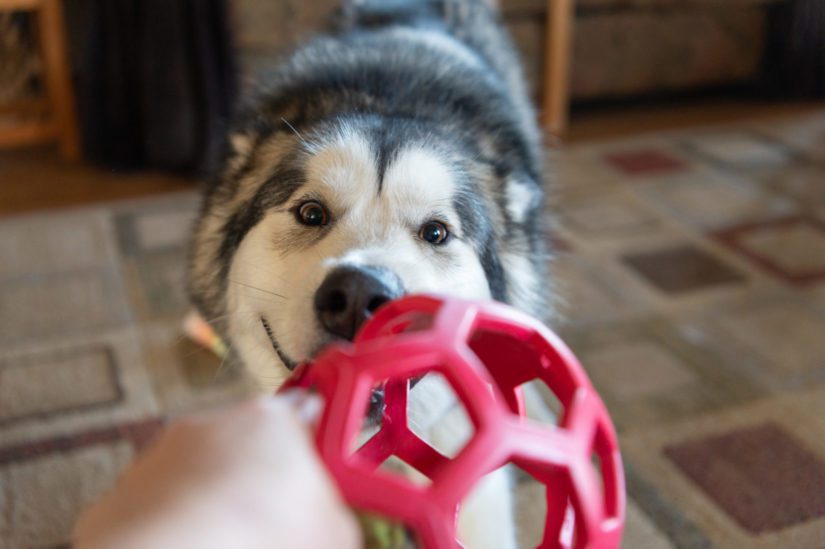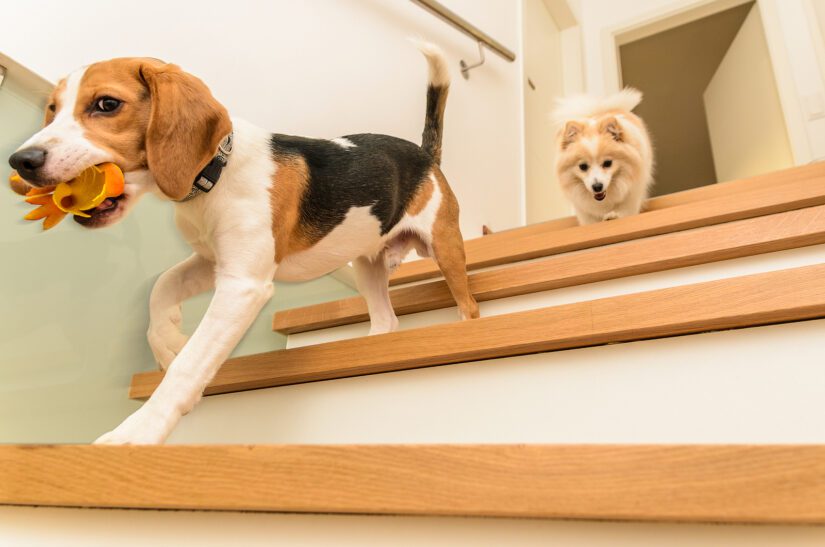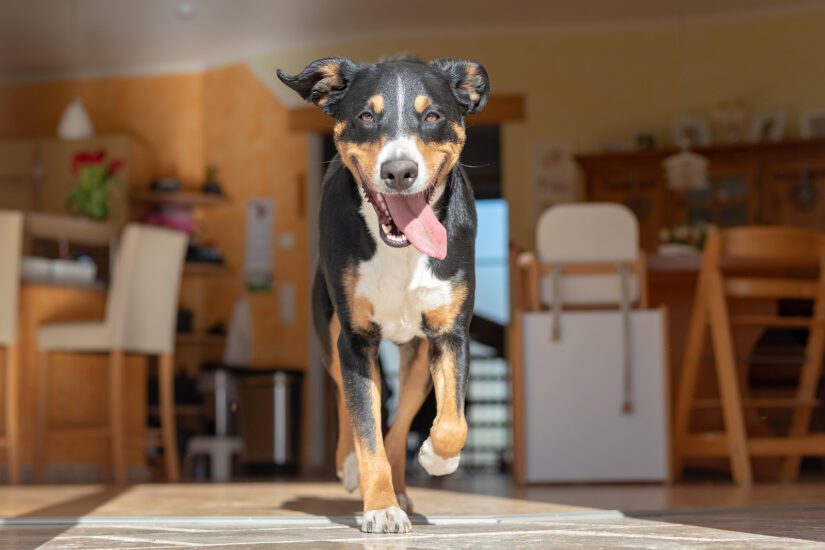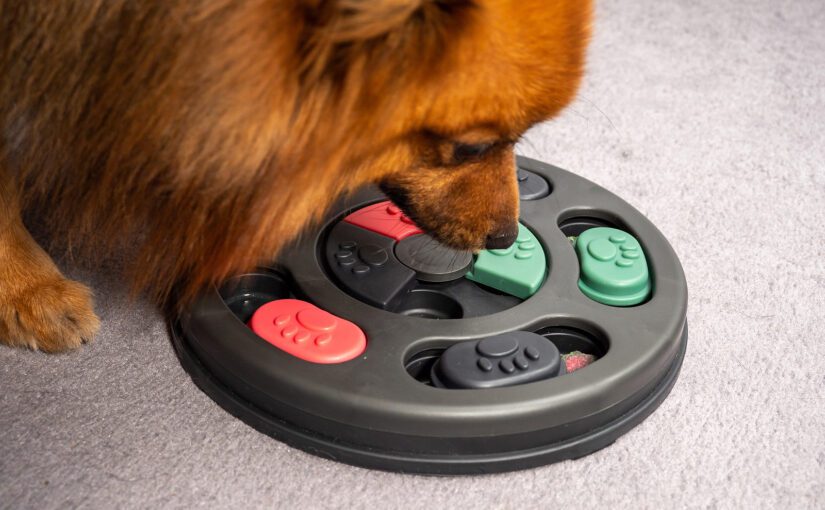If staying inside during cold and wet winter days gives you cabin fever, your dog may feel the same. “Physical and mental stimulation are important for dogs, particularly for certain breeds,” says Dr. Hannah Weitzenfeld, senior manager of animal health for the BC SPCA. “But even if you can’t get outdoors as often as you’re used to, there are still ways to ensure your dog gets plenty of exercise and playtime.”

1. Keep away
If you have family members or a roommate to join in, a game of “keep away” can keep your dog entertained and on the move. Choose a soft toy or ball and find an area free of breakable items. Toss the toy between participants, encouraging your pup to run between you. Allow your dog to catch the toy occasionally so he doesn’t become frustrated.
2. Stair ball toss
Running up and down the stairs gives your dog a good cardio and muscle workout and the elevation will help tire her out. Stand either at the top or bottom of the stairs and toss a ball for her to fetch and bring back to you. Or, if you are feeling energetic, make it a team sport and run up and down the stairs with her!

3. Go fetch
Find the longest hallway or biggest room in your home and throw or roll a ball for your dog to fetch. Keep going until your dog is tired or starts to lose interest. Provide treats as a reward for returning and dropping the ball.
4. Chase
Unless you live somewhere where noise is an issue, a rousing game of “chase around the home” will give both you and your dog a workout.
5. Hide and seek
One or more people can play this game. Hide in different rooms and call your dog (hide well enough that it is challenging for your pupper!). Once he finds you, reward him with treats and pets.

6. Obstacle course
You can set up your own agility/obstacle course at home with whatever you have handy – cushions to jump over, a hula hoop to jump through and a tunnel made of chairs draped with a blanket. Reward your dog for successfully going over, under and through the obstacles.
7. Food puzzles
Mental stimulation is essential for your dog and can often be as tiring as physical activity. Add food or treats to a Kong, food-dispensing ball or food-puzzle toy so your dog works hard to get them out. Various commercial food toys and puzzles are available, but you can also DIY-it by putting treats inside an empty plastic bottle or taped cardboard box.

8. Learning new tricks
With long hours at home, there’s never been a better time to work on training and new tricks with your pet. It’s important to always use positive, reward-based training to help your dog learn. Learn more at AnimalKind.ca.
Subscribe to AnimalKind
By signing up, you’ll get the latest news on dog training standards and developments, plus updates on new accredited companies.
